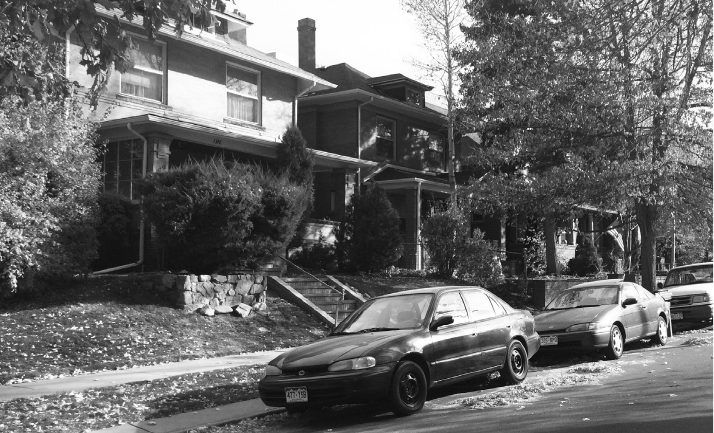
SHORT-TERM RENTALS:
MUNICIPAL BEST PRACTICES IN COLORADO
Short-term rentals (STRs) are
residential properties that are rented
to a visitor for fewer than 30 days.
As the popularity of short-term rental
properties continues to grow, the
issues they create for municipal
governments are growing as well.
Municipal ofcials nd themselves
dealing with citizens’ concerns about
residential neighborhood integrity,
unfair business competition, housing
safety, and availability of affordable
housing. Cities and towns are also
seeking to collect sales and lodging
taxes generated by this new business
activity. Municipalities in Colorado and
across the nation are handling STR
issues in many ways. Austin, Texas,
limits STRs to no more than three
percent of non-primary residences in
any census tract. San Francisco
requires an adequate amount of
insurance coverage. Portland,
Oregon’s ordinance states that
STR operators must occupy the
residence for at least nine months
of the year. Santa Monica has
created an enforcement department
dedicated to policing STRs. A 2015
National League of Cities (NLC)
study showed 13 percent of
municipalities have adopted
ordinances specically regulating
short-term rental properties, ve
percent have banned the practice,
24 percent are handling STRs
through existing business regulations,
and 58 percent have not addressed
the issue.
Internet platforms have fueled the
rapid expansion of STRs from a
service focused on renting spare
rooms in private homes to the creation
of local businesses which own houses
that are used exclusively for short-term
rentals. Rental data and analytics rm
Airdna estimates that more than
22,000 homes and apartments in
Colorado are listed with Airbnb — a
leader in the online listing business.
The top ve municipalities with listings
are Denver, Breckenridge, Steamboat
Springs, Boulder, and Vail. More than
16,000 Colorado listings are posted
on rival VRBO. Thousands more are
listed on the many other Internet
listing services.
There is no one-size-ts-all answer for
municipalities in regulating short-term
rentals. Do you limit STRs to a primary
residence? Do you cap their numbers
in residential zones? Do you enter into
an agreement with the Internet listing
company to collect and remit taxes?
How do you effectively enforce
regulations? The NLC study concludes
with sound advice: “As city ofcials
prepare to modify regulations or
develop new ordinances or legislation
to t the sharing economy they must
balance issues of innovation,
economic development, tourism,
equity, access, and safety. At the
same time, they must be mindful of
the processes they put in place to
understand these new businesses,
engage the right stakeholders, share
ideas for new regulations, capture and
analyze new data, and develop
implementation strategies.”
Cities and towns across Colorado
have enacted ordinances that
regulate short-term rentals in ways
that meet their community’s needs.
This Knowledge Now proles four
different approaches.
The Knowledge Now series features practical research on timely topics
from the Colorado Municipal League.
KNOWLEDGE NOW 1
Short-Term Rentals, November 2016
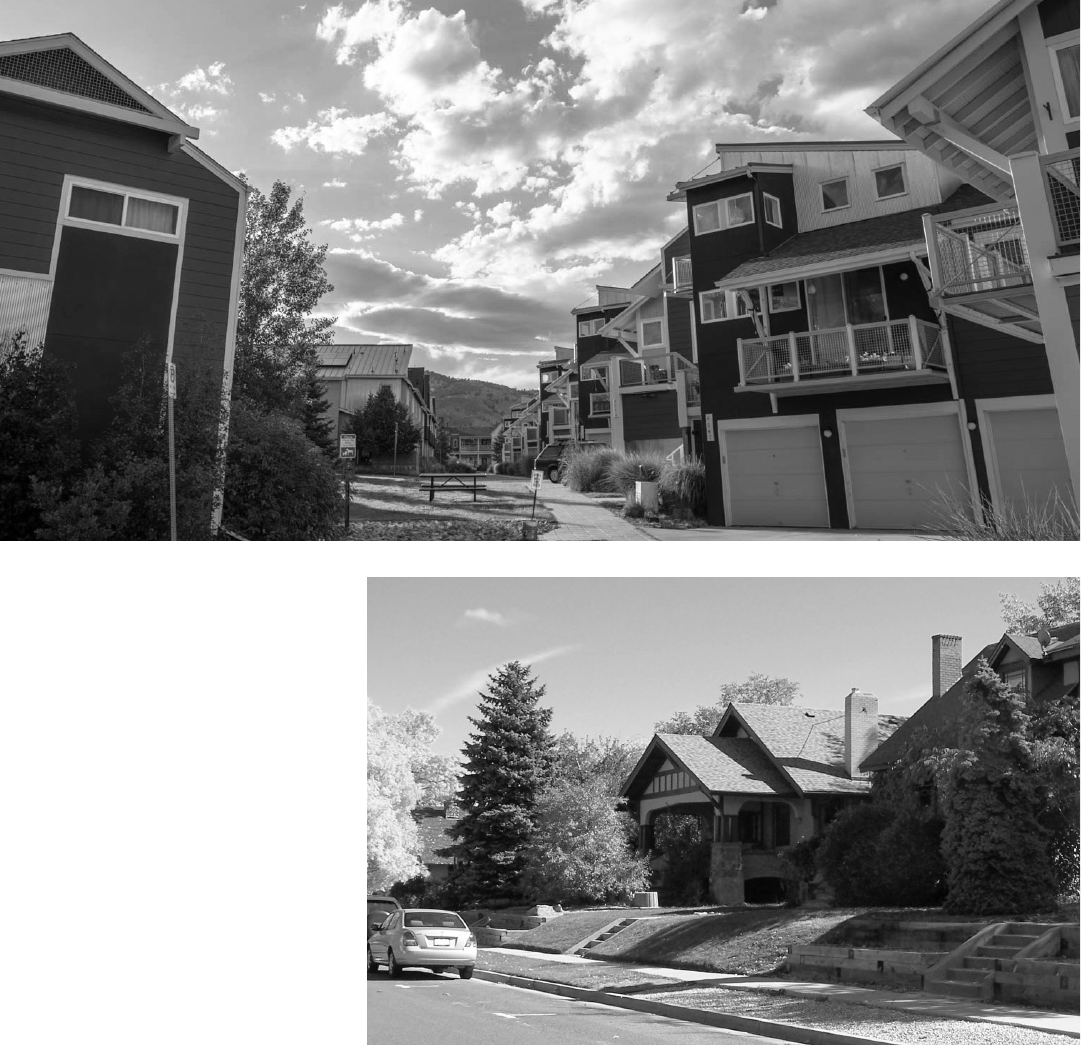
2 COLORADO MUNICIPAL LEAGUE
SHORT-TERM RENTALS IN BOULDER
By Thomas Carr, Boulder city attorney
On Sept. 29, 2015, Boulder City
Council passed ordinance 8050
legalizing and regulating short-term
rentals. The ordinance was effective
Jan. 4, 2016, contingent on the voters
passing a ballot measure extending
the city’s accommodations tax to
short-term rentals. The voters
approved a 7.5 percent tax on short-
term rentals and the ordinance went
into effect.
Boulder’s ordinance is based on code
provisions regulating properties rented
for more than 30 days, which has been
in place since the 1990s. The short-
term rental code requires a license for
all short-term rentals. The rental
property must be the owner’s principal
residence. The address must appear
on the owner’s voter registration, auto
registration or as the address at which
the owner’s children are registered for
school. The owner must be a natural
person and the owner’s name must
appear on the deed for the property.
On Dec. 6, the city council will be
considering an amendment to allow
short-term rental of properties held
in a living trust. The property must
have smoke and carbon monoxide
detectors, but the life safety
inspections required for long-term
rentals are waived for all short-term
rentals except those in accessory
units. All advertisements must include
the short-term rental license number. A
property can only have one short-term
rental license. If there is an accessory
unit on the property, either the main
residence or the accessory unit may
have a license, but not both.
Occupancy is limited to either three or
four unrelated persons depending on
the zoning. A group of related persons
is counted as one person. Short-term
rentals are not permitted in affordable
housing units. Accessory units may
only be rented as short-term rentals for
120 days in any calendar year.
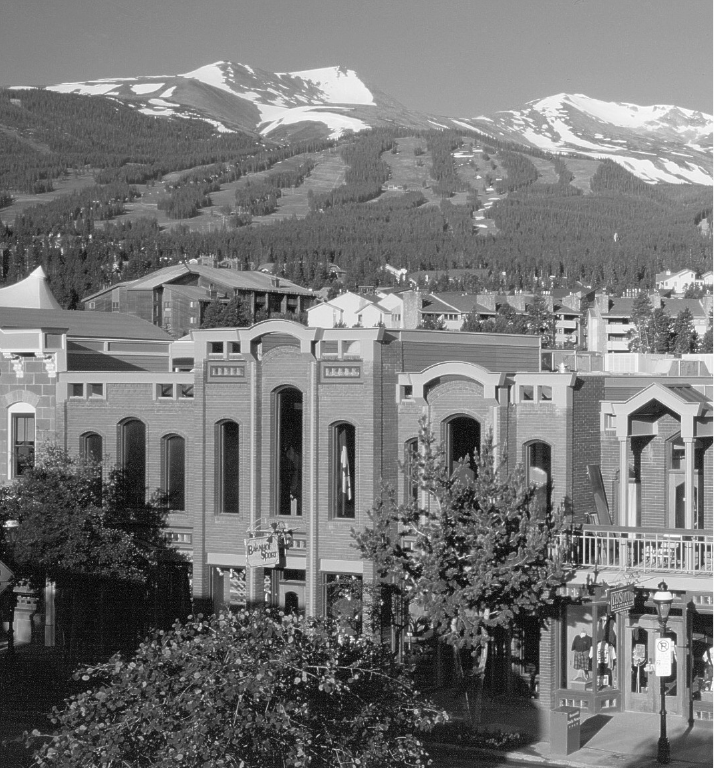
KNOWLEDGE NOW 3
BRECKENRIDGE: A PIONEER IN SHORT-TERM RENTALS
By Leslie Fischer, Breckenridge accounting services manager
Short-term rentals (STR) are nothing
new to the Town of Breckenridge.
The Town has historically embraced
and thrived with the widespread
practice of STRs since boarding
houses in the 1850s and their revival
in popularity with the opening of the
ski area in 1961.
Breckenridge currently has a
population close to 4,700 — yet
sustains 3,345 accommodation unit
licenses, six hotels, and three bed and
breakfasts. Clearly STRs are vital to
the economy of the Town. Combining
sales, accommodations, and
marijuana taxes — lodging services
provide 40 percent of Town revenue.
At the same time, the Town wants to
ensure that long-term housing is
available for the local workforce.
To that end, the Town has proposed a
2017 budget of more than $19 million
for the Affordable Housing Fund. The
Town is also pursuing incentives for
property owners to rent long-term. The
“Housing Works” program, organized
by a local nonprot, is designed to
match local families earning moderate
household incomes with property
owners who are either tired of dealing
with the STR market or want to offer
their home for long-term rental for the
rst time.
STR regulation in Breckenridge
began in 1984 when the tax structure
of collecting the town sales tax
(currently 2.5 percent) and the
Town accommodations tax (currently
3.4 percent) was applied to STRs.
Together with state, county, and
affordable housing sales taxes, the
total tax on short term rentals is
11.675 percent.
The Breckenridge Municipal Code
includes the following:
• Tax is collected on the purchase
price of lodging, as well as any
mandatory service charges
required of the renter.
• Tax must be remitted directly
to the Town and not be passed on
to another party such as a
property manager.
• Tax charges must be listed
separately on the bill presented
to the consumer.
• Breckenridge recognizes that
STRs are engaged in business.
As a result, all property owners of
STRs are required to pay an
annual occupational license tax
(aka Accommodation Unit
License). The tax ranges from
$75 to $175 annually, depending
upon the number of bedrooms in
the property. By requiring licensing
(regardless of tax remittance), the
Town is able to match online
listings with the licensed owners.
• Breckenridge does not impose
zoning restrictions on STRs, with
the exception of prohibiting short
term rental of deed restricted
workforce housing.
• Outside of the norm for residential
properties, no additional restrictions
are placed on STRs simply due to
STR activity at the property (such
as building inspections or additional
safety regulations).
• STRs may be either a primary or
non-primary residence and there is
no occupancy limit imposed.
Even through these times of change,
short-term rentals continue to play
an important role in welcoming
visitors to Breckenridge.
“ … You better start swimming or you’ll
sink like a stone. For the times they
are a-changing.”
— Bob Dylan
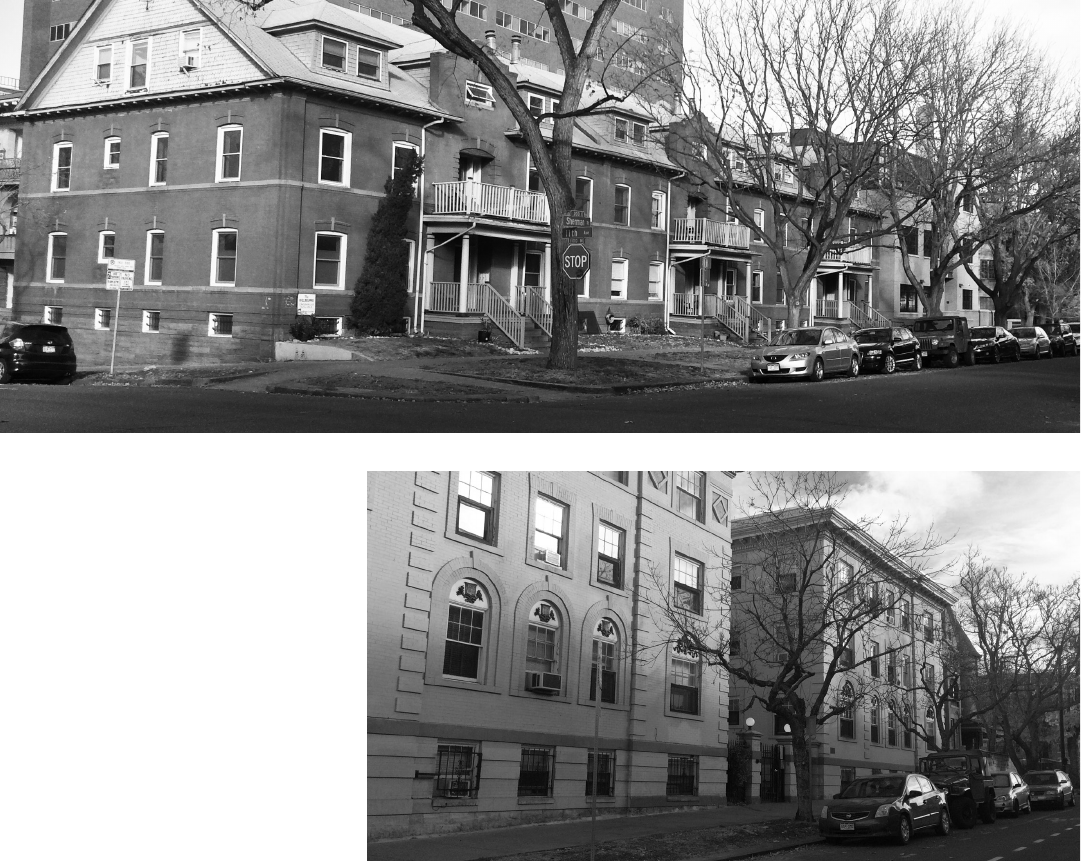
DENVER’S APPROACH TO SHORT-TERM RENTALS
By Luke Palmisano, aide to Denver Councilwoman Mary Beth Susman
Denver’s approach to short-term
rentals sought to craft 21st century
solutions to 21st century concerns.
We wanted solutions to protect the
safety of guests and hosts while
balancing the needs of neighbors,
hosts, guests, hoteliers, and the city.
All short-term rentals (STRs) were
illegal in solely residential zones prior to
Denver’s regulations. Actually the term
“short-term rental” did not appear in our
zoning code, but rental of residential
units required at least a 30-day term.
The key components of Denver’s
regulations include a licensing
requirement, an assessment of
lodger’s taxes (10.75 percent),
measures to protect the safety of
guests and hosts, and conditions that
seek to ensure compliance. Denver
requires hosts to obtain a short-term
rental license through the Department
of Excise and Licenses (EXL).
The fee for the STR license is
$25 renewed annually. The tax
license is $50 renewed biennially.
STRs are an accessory use wherever
residential uses are allowed; therefore
the host does not need a zoning
permit. The unit must be the primary
residence of the host (whether owned
or rented), certied by driver’s license,
voter registration, and other means. An
inspection is not required to obtain a
license. Hosts do not need to be
present while renting their dwelling.
Hosts must have a carbon monoxide
detector, smoke detector, and re
extinguisher. They must also provide
guests with an information packet that
includes noise ordinance regulations,
trash pick-up dates and rules, local
contacts, and other information.
An important goal was to create a
simple enough process that would
induce the greatest compliance rate
because licensing gives us the best
route to enforcement. To further that
end, Denver is the rst municipality in
the nation to offer a short-term rental
licenses completely online. Applicants
afrm their primary residence status,
presence of equipment and materials
all online, under penalty of perjury.
To aid in enforcement, Denver’s STR
ordinance requires the licensed host to
post the license number on all
advertising. This provides EXL the
ability to spot check STR listings on all
venues/platforms for compliance. If a
listing does not include a license
number EXL pursues compliance.
All permitting of STRs can be prohibited
by landlords and homeowners
associations. Apartment complexes
with “guest suites” are exempt from
needing licenses.
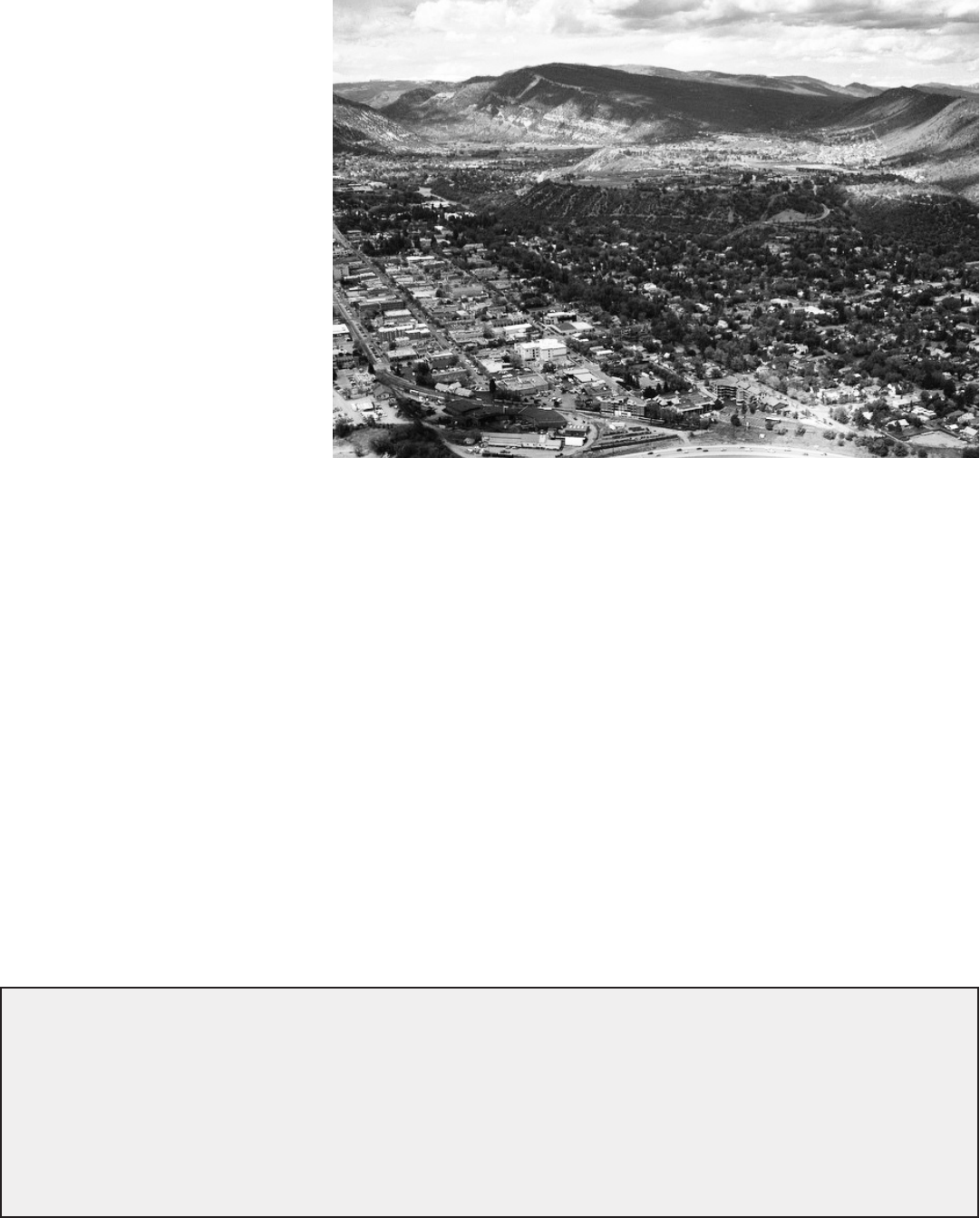
RESOURCES
CML continues to develop STR information through the CML Sharing Economy Task Force, chaired by
Denver Councilmember Mary Beth Susman. A matrix of STR ordinances as well as sample ordinances,
licensing forms, and other information is available on the CML website at www.cml.org, under Issues
> Sharing Economy > Ordinances.
An informative study of vacation home rentals conducted by the Colorado Association of Ski Towns may be viewed
online at the CAST website (coskitowns.com/links-of-interest).
DURANGO ADDRESSES SHORT-TERM RENTAL ISSUES
By Mary Beth Miles, Durango assistant to the city manager/sustainability coordinator
Checking in for a night’s stay no longer
requires going up to the welcome
counter to produce your ID and credit
card. With the arrival of Airbnb, VRBO,
and HomeAway, lodging options have
changed forever.
That is why the City of Durango
recognized the need to address the
impacts of short-term rentals in 2014.
The policy adopted by the City Council
focused on preserving residential and
neighborhood character; ensuring
collection of sales and lodging taxes;
and requiring compliance with basic
health and life safety regulations.
Durango’s policy balances short-term
lodging needs with the need to maintain
and provide adequate housing options
for full-time residents. The challenge is
exacerbated by a 1.2 percent rental
vacancy rate in an already strained
housing market. As a tourist destination,
Durango’s economy benets from
visitors who contribute to the local
economy. Property owners recognize
the income potential of the short-term
rental market. Thus, Durango
developed an innovative policy solution
that simultaneously balanced rental
market pressures, the sharing of
residential real estate, and income
potential for local property owners.
The short-term rental regulations seek
to maintain neighborhood character,
vitality, and vibrancy by ensuring that
land uses are compatible. Durango
only allows short-term rentals in limited
zones, employs a street segment cap
that restricts short-term rentals to only
one per block face, and requires all
short-term rentals to obtain a limited
use permit. In addition to fullling the
land use process requirements,
short-term rentals are also required to
obtain business and lodger’s tax
licenses. The City’s regulations are
intended to prohibit market saturation.
Of the approximately 8,000 housing
units in Durango, in the two zones
where short-term rentals are permitted,
there a total of 60 permits available for
short-term rentals.
Additional changes to the policy are
being contemplated by city council to
address short-term rental agreements
for a single room in a residential unit.
Under the existing regulations, this type
of arrangement, common under the
Airbnb model, is not permitted. A pilot
program, restricted to certain areas of
the city, is being developed with a
separate permitting process to address
these rental units.
There is no one-size-ts-all
regulatory framework for
municipalities in Colorado seeking
to regulate short-term rentals.
Durango has developed — and
continues to rene — a policy
governing this emerging economy
that is context-sensitive and reective
of our community character.

KNOWLEDGE
no
w
Colorado Municipal League
1144 Sherman Street
Denver, CO 80203-2207
